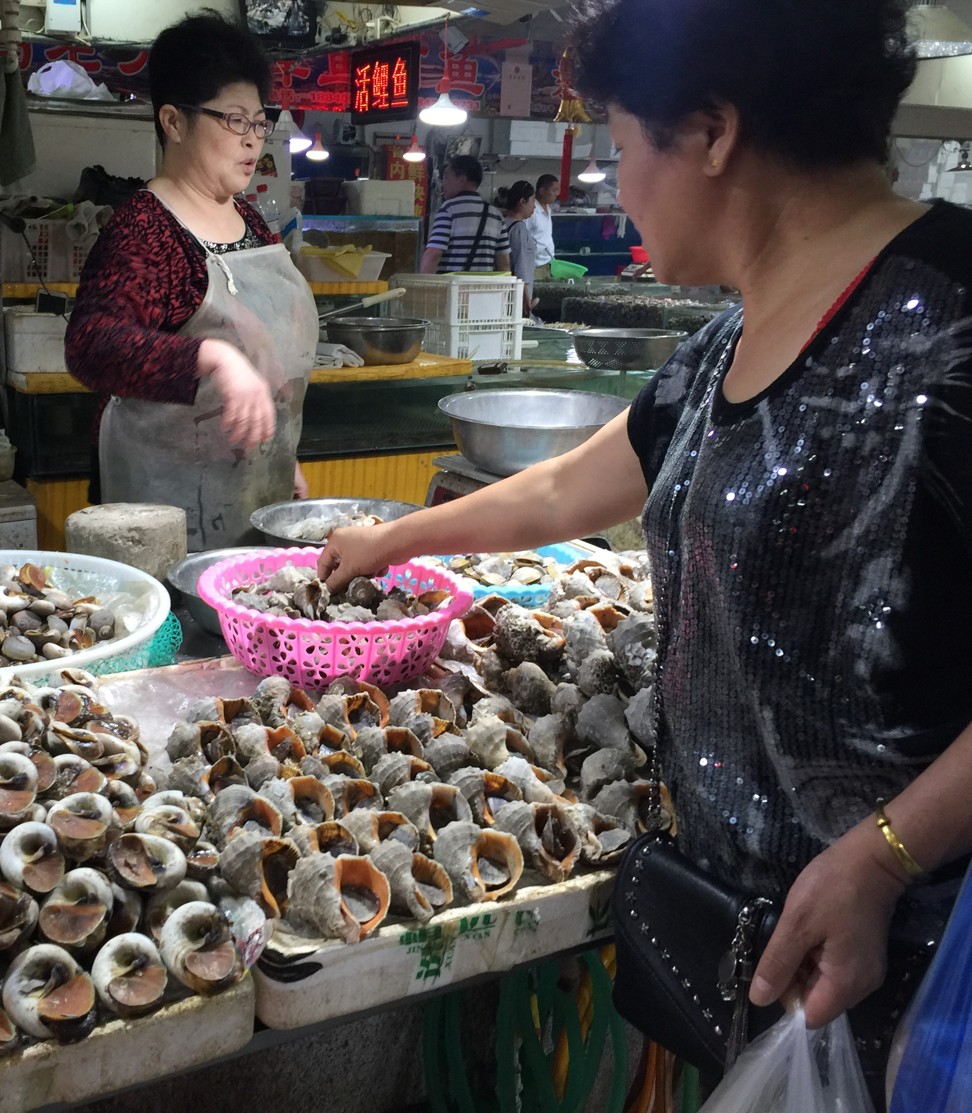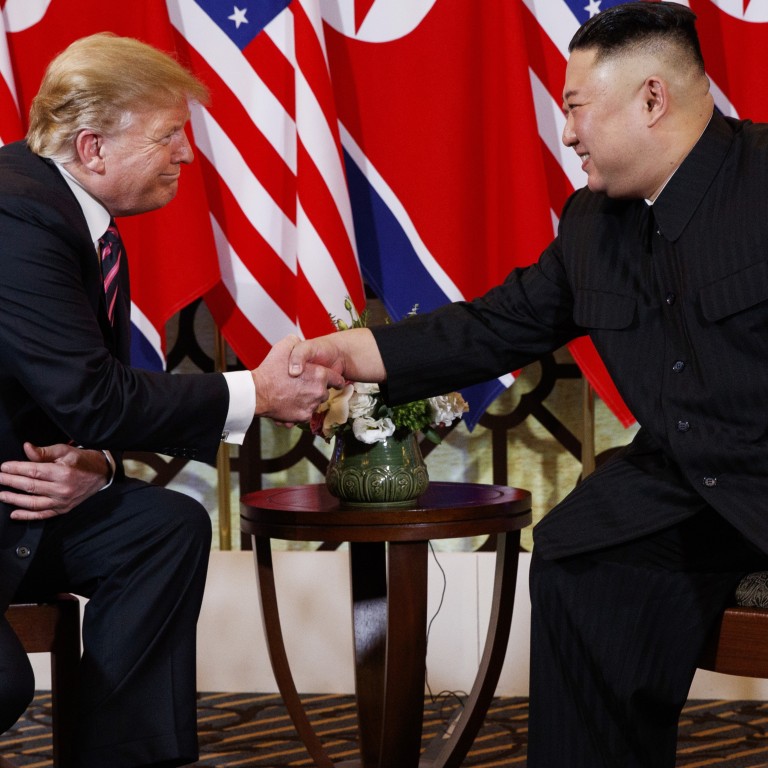
Why China must get North Korea to lower its demands for sanctions relief in nuclear talks
- Mathieu Duchatel writes that ‘dramatic shifts’ in Xi Jinping’s North Korea policy emerged during the failed Trump-Kim talks in Hanoi
China is, of course, not responsible for the failure of the Hanoi summit between US President Donald Trump and North Korean leader Kim Jong-un to produce an agreement between Washington and Pyongyang.
But the two dramatic shifts of Chinese President Xi Jinping’s North Korea policy in 2016 and 2018 have had a significant impact on the North’s formulation of its initial bargaining offer, as it was finally made public in Hanoi.
In 2016, China finally stopped preventing the expansion of the sanctions from a narrow focus on entities and individuals directly responsible for proliferation, to a set of damaging measures targeting commercial activities. This clearly was a turning point, one that shaped an environment conducive to the resumption of diplomacy.
But there was another turning point in March 2018 when Kim’s train arrived in Beijing for a surprise reconciliation visit.
Since then, China has empowered Kim with four summit meetings, and given full support for the idea of reciprocal concessions between the US and North Korea. This means that China is partly to blame for the major reason that led to Hanoi’s failure: North Korea’s excessive and unrealistic offer.
The Hanoi summit marks the first time North Korea formulated precise demands with regards to sanctions relief.
In his post-summit press conference, North Korea’s foreign minister, Ri Yong Ho, made clear that his side had asked the “US to lift articles of sanctions that impede the civilian economy and the livelihood of our people”, and mentioned the lifting of five UN sanctions resolutions adopted after 2016.
They are most likely resolutions 2270 (March 2016), 2321 (November 2016), 2371 (July 2017), 2375 (September 2017) and 2397 (November 2017), adopted in response to North Korea’s fourth, fifth and sixth nuclear tests and testing of ballistic missile technology.
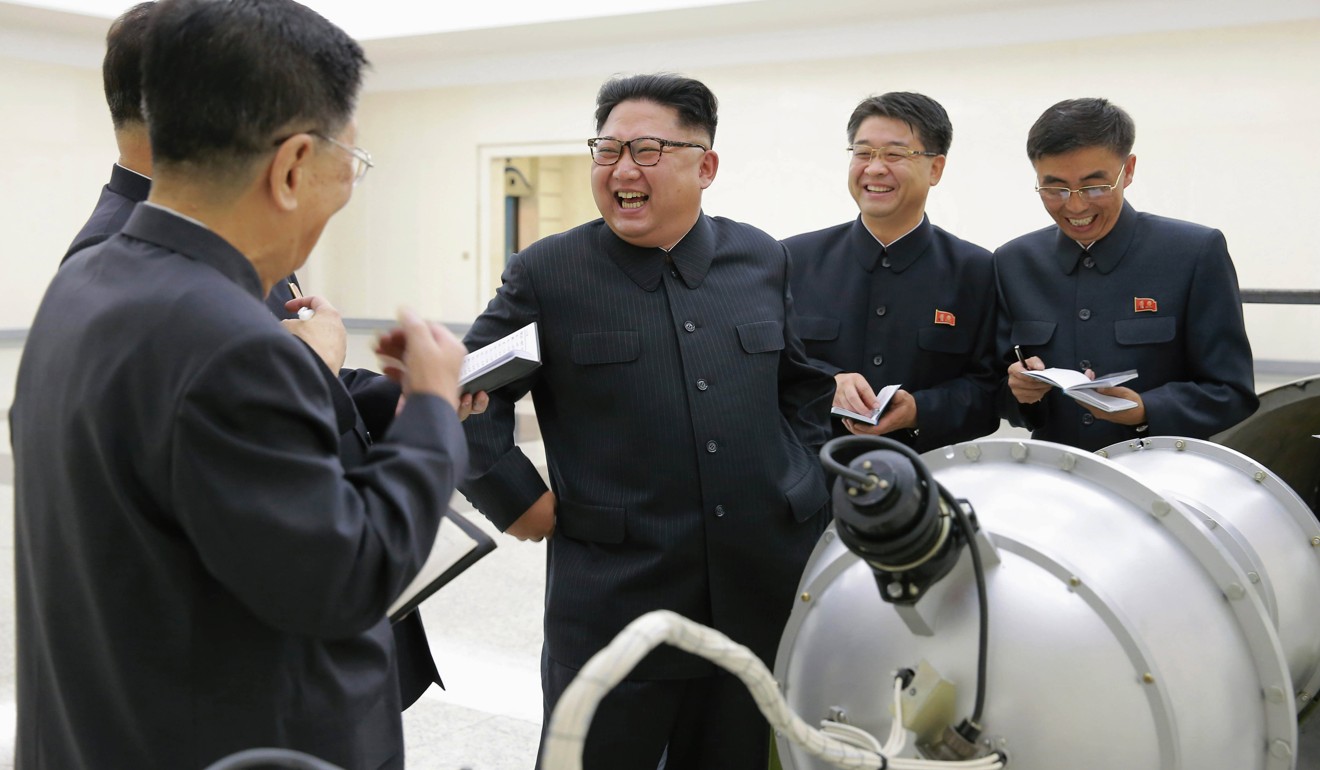
This is where the China factor is important.
Until 2016, the multilateral regime of sanctions was conceived to be “smart”. It targeted proliferating individuals and entities but spared North Korea’s other economic activities.
The package included an embargo against North Korea’s weapons programmes (WMD and conventional) and three forms of punishment against the proliferating policy elite: travel bans, an assets freeze and restrictions on imports of luxury products.
Unfortunately, the attempt to distinguish between proliferators and the larger population failed, and North Korea accumulated success after success on the path to producing and stockpiling nuclear weapons and their means of delivery.
During all negotiations at the UN Security Council, China worked to maintain the sanctions at that very light level, arguing that more would be counterproductive, disputing the logic behind adding luxury products to argue that alienating the North Korean elite was undermining the possibility of a diplomatic solution.
China’s sanctions diplomacy was in fact fueled by the perception that endorsing a package of tough measures would amount to supporting a Western policy aimed at regime change. But this stopped after North Korea’s fourth nuclear test, the first under Kim Jong-un, during the negotiation of Security Council resolution 2270.
Since then, the sanctions gradually expanded to target North Korea’s commercial activities, bringing the regime close to a full embargo with only limited space for humanitarian exemptions.
They now include North Korea’s major sources of revenue: exports of coal, iron ore, gold and rare earth material, and even exports of food and agricultural products (northeastern China loves consuming North Korean seafood).
They target exports of textiles and ban joint ventures. They have moved from a cap on overseas labor contracts to an injunction to repatriate all North Korean earning income within 24 months.
They have created a strict inspection regime for air and maritime transportation to and from the North. They severely restrict the options for North Korean diplomatic missions to conduct business activities overseas.
And they target North Korea’s imports of crude oil and refined petroleum products, albeit not in the form of an embargo as China successfully manoeuvred to save North Korea’s lifeline, the Dandong pipeline.
What is left for North Korea? Tourism, niche sectors such as traditional medicine, and sanctions violations. South Korea’s Central Bank estimated that the North’s GDP shrank by 3.5 per cent in 2017, the worst figure since 1997. Some Korean economists estimate the decrease was even worse in 2018, reaching 5 per cent.
What North Korea wants is essentially a return to the pre-2016 status quo ante.
Or in other words, as made clear by the Trump administration’s chief negotiator Steven Biegun in remarks to the press, North Korea would create a situation under which their nuclear and ballistic nuclear programme would be again subsidised by quasi-normal business relations with the international community.
The puzzling question is what led North Korea to believe that such a major reward package could be secured against the third partial dismantlement of the Yongbyon nuclear complex.
Biegun’s remarks to the press point to divergences between the US and the North regarding how to define what Yongbyon really includes, and there are, of course, many questions regarding what kind of verification regime should be created for Yongbyon.
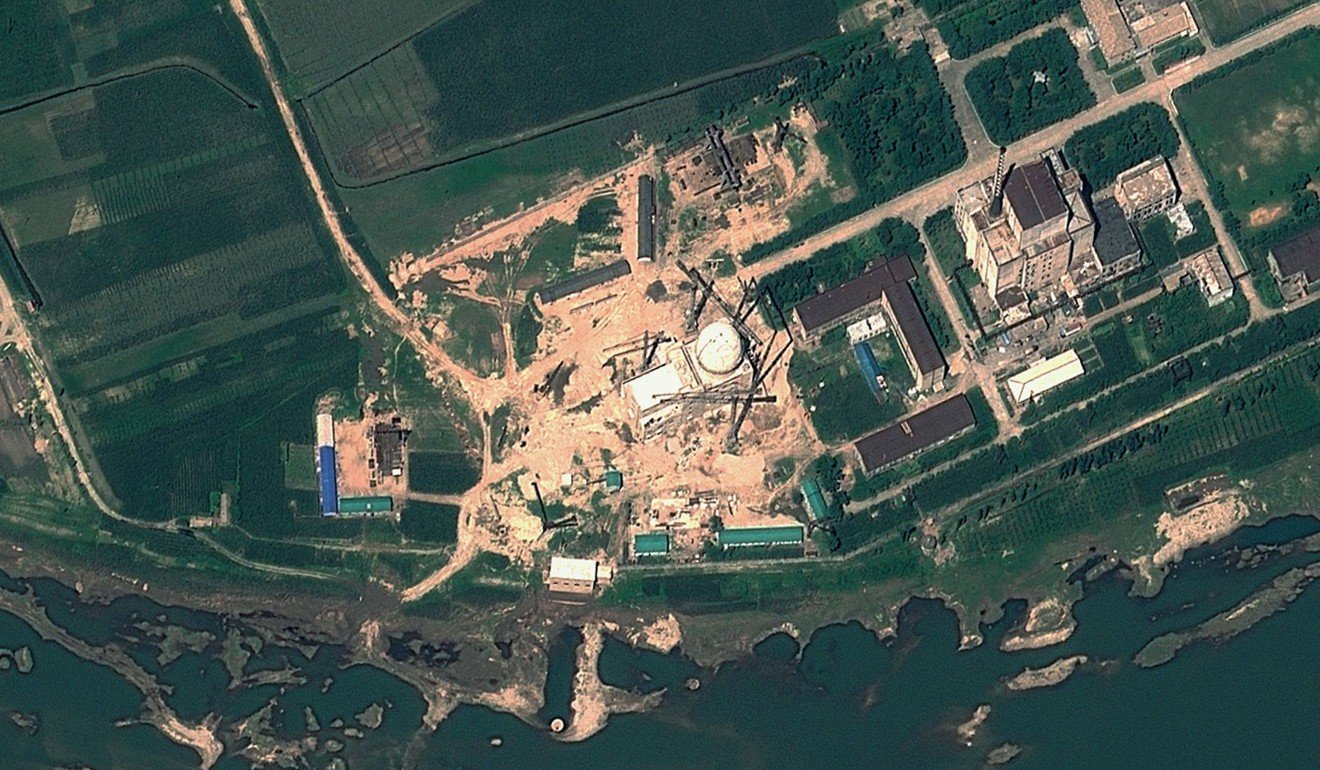
But even if an agreement were reached over Yongbyon, other uranium enrichment facilities would still be up and running after the facility’s dismantling.
And this leaves the question of stockpiles and infrastructure completely unsolved.
What would become of the existing stockpiles of warheads and fissile material (the agreement with Iran planned for 97 per cent of Iran’s fissile material to be taken out of the country); the scientific infrastructure; and of course, missiles of various range? Not simply the intercontinental programme – the medium-range Nodong is the most likely missile to have an operational nuclear capability.
Of course, this might only be North Korea’s initial offer in what they conceive as a long and hard bargaining process. But in formulating such an excessive offer, North Korea is definitely encouraged by the leverage and the support it receives from Beijing.
The Trump administration has already made concessions of historical proportions – a point that clearly was not lost on Pyongyang
Today, China plays a central role in shaping the ideas that dominate the discussion regarding the possibility of North Korean disarmament.
China is the only country taking credit for the success of the double freeze – the suspension of North Korea’s ballistic and nuclear tests against the suspension of US-ROK joint military exercises, even though the idea originated in North Korea and was supported by Russia.
China fully supports the idea of “action for action” and calls the US and the DPRK to “meet halfway”. China is also the strongest diplomatic voice when it comes to supporting humanitarian exemptions to the sanctions regime.
But even more importantly, China is the strongest political force behind the idea that gradual economic opening is the only realistic path to full disarmament by North Korea, arguing that a fundamental change in Pyongyang’s strategic calculus and threat perception will not happen overnight.
Given this, it appears essential to seek unity in the international community to ensure a coherent message reaches Pyongyang with regards to the need to formulate a realistic offer.
The Trump administration has already made concessions of historical proportions. Accepting summit diplomacy without prior concessions amounted to a tacit recognition of North Korea’s status as a nuclear power, a point that clearly was not lost on Pyongyang.
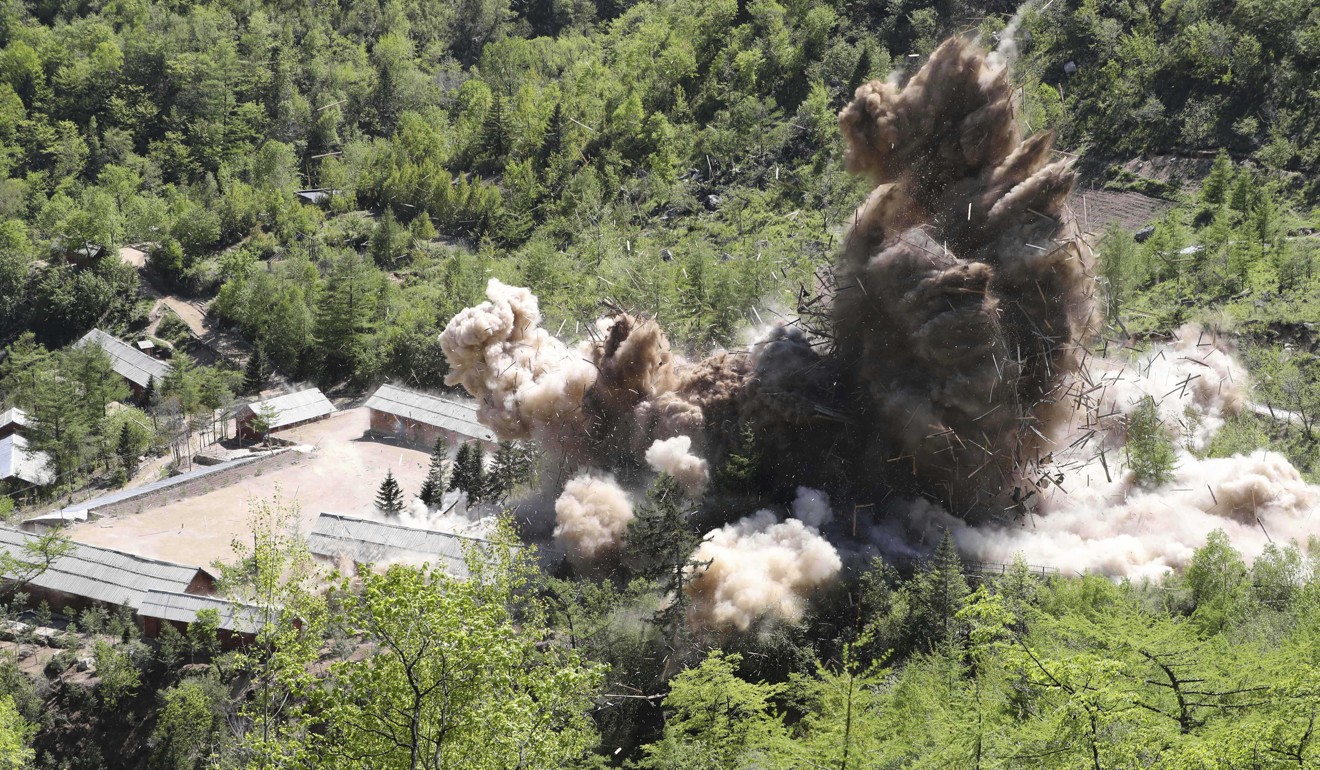
Dropping the request of obtaining from Pyongyang a full list of proliferation activities and accepting instead North Korea’s terms for an “action for action” process of engagement was also a major retreat from the inflexibility of the Obama administration.
China has a role to play to convince the North to show sincerity by considerably lowering its demands for sanctions relief, or come up with a more serious package of disarmament measures.
Mathieu Duchâtel is director of the Asia programme at Institut Montaigne in Paris.

